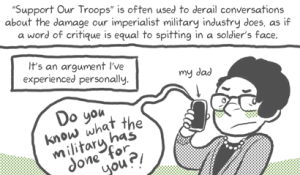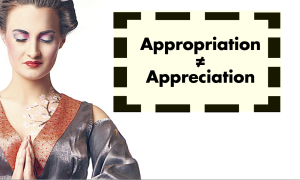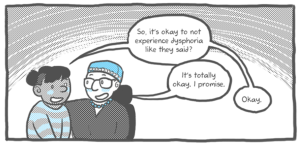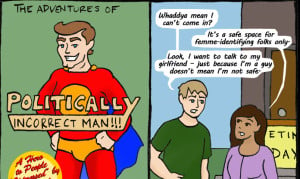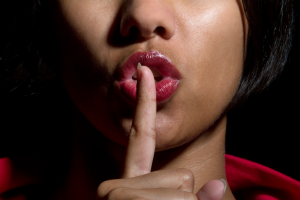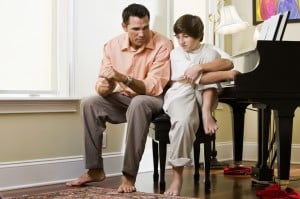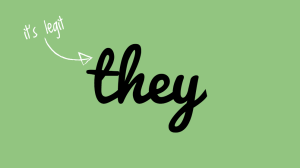As a woman who speaks on the Internet, criticism is just part of my day to day, but one of my favorite criticisms is that I’m someone that has a perpetual case of the dreaded “Victim’s Complex.”
“Victim” has always been a word that has made me feel some type of way. When I think of the word “victim,” I have images in my mind of refugees fleeing from countries because of persecution or people caught in acts of random violence that are forever scarred for life.
“Victim” has always been a term that I’ve been hesitant to apply to myself, so I often describe myself as a survivor, not because I want accolades or recognition for all of the things that I’ve had to overcome or the things that I’ve unfortunately experienced; but because no matter what happens to me, I’ve always had that thing in the back of my mind that tells me that regardless of what’s happening today, I’m going to continue moving forward.
We live in a society that celebrates the result of overcoming a trauma but looks down on people who haven’t just been able to get over it yet. We applaud a rape survivor for becoming “The Queen of Dragons,” and a man blinded in his childhood for becoming a superhero. And with those fictional narratives being popularized, it’s easy to understand why people in the real world would stray away from living a life that could be seen as someone living within the “Victim’s Complex.”
A Victim’s Complex is often referred to by psychologists as a “Martyr Complex.” A Martyr’s Complex is a psychological disorder where a person desires the feeling of being martyred for their own sake. Often it’s a way of avoiding responsibility or fulfilling a psychological need.
Because of my work, I’m often told that I have a Victim’s Complex, because I discuss some of the many intersections that I embody as a trans person, a black person, a woman, and a person of size. There are people who believe that ignoring, or rather, not speaking about these intersections and the way in which I have experienced oppression because I’ve embodied them, is the best way of getting past these oppressions.
Like, if we just stop talking about racism, then racism would be over. And while I can laugh at them for feeling this way, as someone who doesn’t like to see themselves as a victim, there’s a part of me that understands how they can come up with that conclusion.
[Title Card: Internalized Trauma and Why We Should Talk About It]
As a survivor of rape and sexual assault, the way I’ve dealt with those things is to push them deeper and deeper into my mind. It was easier for me, in many ways, to move forward with my life when I stopped thinking about what happened to me. When I internalized my trauma, it became easier for me to survive, thrive, and become who I am today. But over five years after I experienced sexual violence, I’m coming to realize that not dealing with my trauma has impacted me in ways that were far more severe than I understood.
I never allowed myself to fully accept that this was something that happened to me, and there was nothing that I could possibly do that would give any person an excuse to violate me. I was never able to fully embrace that while today I am a survivor, I am a victim of sexual violence.
That’s still a very hard pill for me to swallow, but it’s one that’s worth me acknowledging for myself. Survival is something that is in my bones. It’s what’s allowed me to get through college despite being a rape survivor, and it’s what has gotten me to the point where I am today despite all the obstacles that have been in my way and some that still are.
In my mind, I’ve made it, so why do I talk about oppression? Why do I speak about misogyny, sexism, racism, and transphobia when, in many ways, I’ve been able to carry on without seeing myself as a victim of any of these things? Why not just listen to what people have been telling me and just get over it and move on?
Well, if there’s one thing that I’ve come to truly understand, it’s that I’ve had to internalize so many of these things in my life. I get called a nigger, a faggot, a tranny, a whore, a slut, a bitch, and a cunt all day long, and I’m at the point where my default reaction is laughter.
But so much has had to happen to me for me to get there. I’ve had to endure so many vicious experiences that my skin is so thick that I flick petty insults off with poise. The realization that I’ve come to is that no one should ever have to be that strong. No one should have to experience so much racism, transphobia, sexism, and misogyny that they get to the point that they’re accustomed to it to the point where they can only laugh at it.
So what I strive to do on my channel is to create content that keeps people, regardless of their background, aware of these types of oppression. It would be easy for me to accept that these things are normal and to just never address them. It’s more comfortable to keep things the way that they are. I have a lot of conversations that are uncomfortable to so many people, but that’s how change is. It’d be easier for us all to accept the many ways in which oppression is normalized in society and to remain uncritical of the things that we produce and digest.
But I’d like to believe that we can one day live in a world where the things that have hurt me become so unpopular and so uncommon that we feel silly even acting like they’re problems.
How great would it be to live in a society where we didn’t pressure people to internalize their pain and indirectly maintain the things that hurt them? I’ll never be a person who wallows in their own self-pity. It never moves forward. But as someone with a platform, I want to start conversations that will make people more aware that our society can be much better than what it is.
And anyway, on that note, I want you to always remember and to never forget that you are beautiful and you are loved.
Bye!






